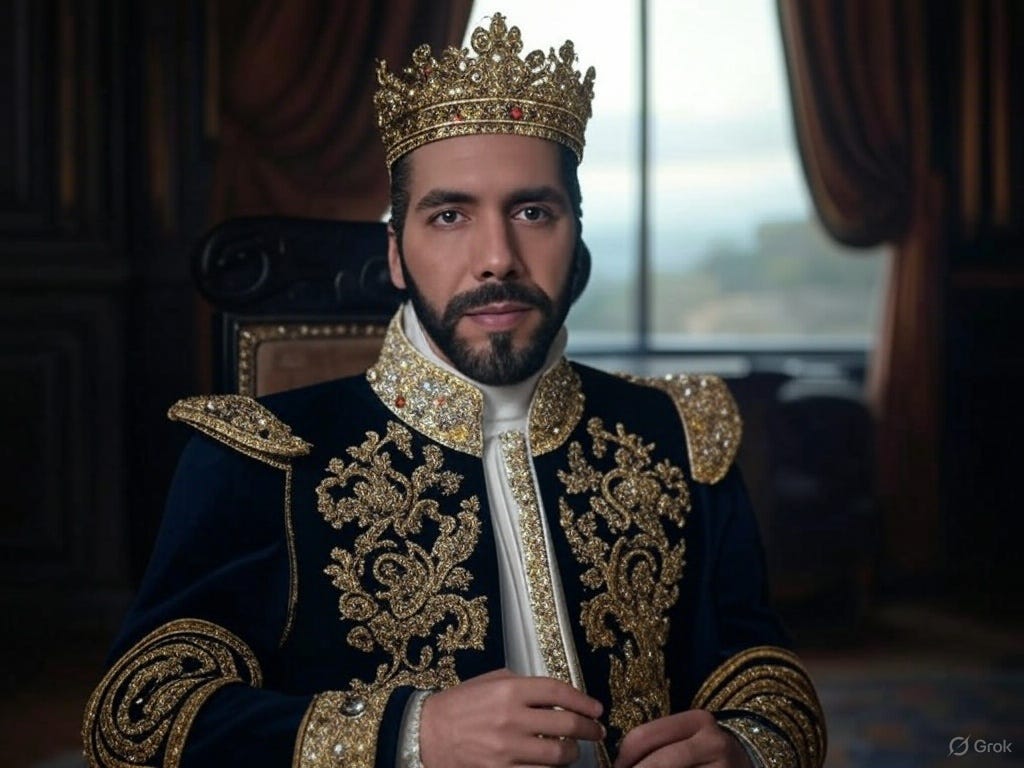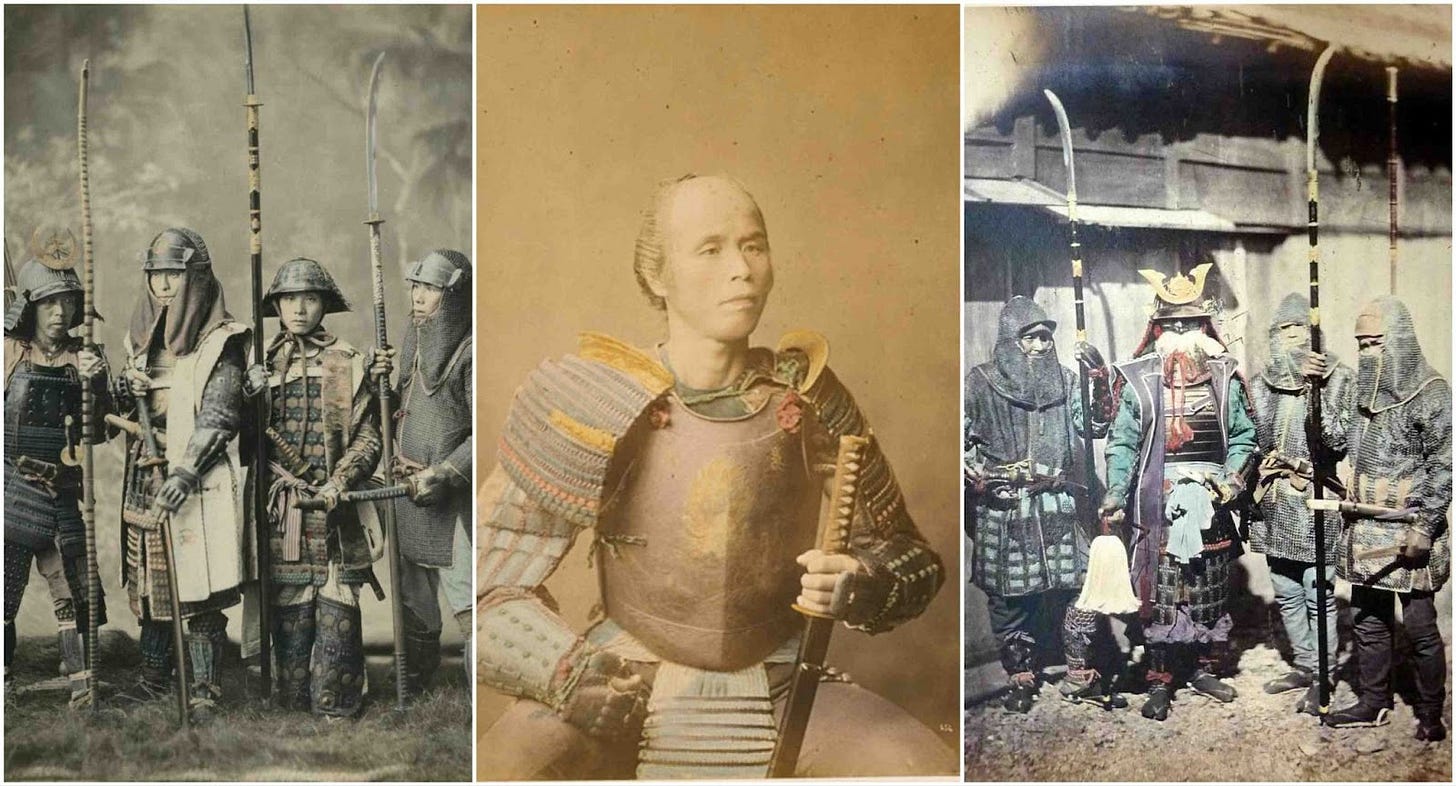This is the fourth and last (for now) in a series of mini-essays on governance. In part 1, I explained why I’ve gradually moved away from freedom maximalism; in part 2, I covered why anarchy is merely a vacuum waiting to be filled; and in part 3 I laid out why democracy must be rejected at all levels. In this essay I’ll provide an alternative that not only makes sense, but seems inevitable.
Intro
Our generation’s mission is to stop the process of de-civilization.
In the lead-up to this essay, I’ve shown that Democracy is no small part of that decivilizing process. By lowering the bar and access requirements, you get mediocrity and a devolution to the lowest common denominator. It’s really not that hard to see. (What’s hard is letting go of the propaganda we’ve been fed for decades.)
But, at the same time we’ve found that Libertarian conceptions of freedom and anarchy fail to provide a viable, long-term solution.
That doesn’t mean that capitalism or Libertarian economic theories should be discarded. On the contrary, right-wing frameworks put themselves at great disadvantage by ignoring or discarding important praxeological principles. Instead, we must find a way to integrate capitalism and Austrian-economics within a more ascendant, vitalistic framework based on human nature, beauty and power. We must, in other words, orient our behavior towards Excellence and prize beauty over both phony ‘social justice’ and ‘economic zone’ GDP, while recognizing that sound economics is as real and in line with human nature as are power and territory.
Only with Excellence can we build Civilization, and only with beauty can we sustain it.
A Framework for Excellence
People need Autonomy to seek Excellence.
Notice again my use of autonomy (self-rule): it is an active state as opposed to the ‘freedom’ to be lazy, sit on the couch and get fat on seed oils. But semantics aside, this is where I align most closely with my Libertarian friends: you cannot reach your potential with constant oversight, regulation, forced compliance, long-housing and having whatever capital you manage to accumulate expropriated or diluted away.
This is why the current democratic, bureaucratic Nanny state simply does not allow for excellence. It must therefore be cut out like the cancer it is.
And now we know it will be, because a mortal wound has been inflicted on it: Bitcoin, a “framework for excellence”.
Because of its absolute scarcity and resistance to manipulation, Bitcoin puts a real and accurate price on things: which by extension means it rewards the good – effort, ingenuity, excellence – and punishes the bad – laziness, deception, incompetence. Furthermore, like nature – like time itself – Bitcoin has no rewind button: if you squander it or lose it, there are no bail-outs; but if you deploy it correctly, safeguard it wisely and generate value for others, then value in its purest form (i.e. Bitcoin) will accrue back to you.
In short, as I wrote in The Bushido of Bitcoin, Bitcoin makes you stronger.
And we need stronger individuals, unhampered in their pursuit of greatness, if we are to reclaim the future. Indeed, Bitcoin does not fix everything, but it’s the necessary foundational layer that melded with “Strong Men” can yield a civilization greater than was previously thought possible.
The question then remains, how will these strong men govern? How will they guide and lead? On top of Bitcoin we need something else: a unique Governance model that blends Tradition with Innovation, the Venerable with the Adventurous, the Citadel and the Market. The right amount of Order and Chaos, Freedom and Responsibility.
The Executive State
In part 5 of The Bushido of Bitcoin, I introduce the concept of an “Executive State” via a short story of a smuggler transporting banned goods into the ‘old world.’
Set in 2084, the story paints a picture in which the future consists of globalist homogenous mega-territories like “Eurabia” and are run like techno-communist dystopias on the one hand, and on the other a series of city-state-like territories whose governance model blends elements of Aristocratic Kingdom, Private Tech Startup and Ethnocentrism: these include New Alexandria, The Free State of Texas, Singapore and the Kingdom of El Salvador.
I will probably devote another essay to the intricacies of such a governance model, and might eventually write a book analyzing the different forms of future State. For the rest of this essay I want to focus on the Ruler, the CEO-King, and the New Nobility.
CEO-Kings
Bitcoin will Make Monarchies Great Again.
Monarchies are the most natural form of political organization. They are traditionally led by the most inspiring, noble and virtuous man. This person ‘owns’ the territory in the political sense, and is therefore the ‘key man’ responsible for its borders, expansion and welfare. Because of this and filial succession, the monarch has a great incentive to maintain or expand – territorially or economically – his kingdom, so that his heir may receive the best possible patrimony.
Contrast that with a ‘representative’ democracy – even assuming for a moment that such a thing is indeed representative… Under that model, this ‘state’ is supposed to own the territory and power, which absent real ownership, becomes a magnet for career politicians and parasites who care nothing for the people they represent or property they manage, and simply dig themselves in like leeches, so they can suck the lifeblood out of the society. The only incentive is to keep power or loot as much as possible while they have it, for which they will employ any tool at their disposal, be it money printing, deficit spending or taxation – with no regard for market realities or economic consequences.
Private companies – the most efficient vehicle for cooperation known to man – are run like monarchies. There is an executive branch with a CEO on top, and also a ‘council’ or board composed of other relevant individuals who own part of the company (think dukes and counts: the Nobility). Monarchies, like companies, are also far more beholden to economic reality, because stealing from the future equates to stealing from themselves or their descendants. They are not renting the territory: they are the owners. Monarchy can therefore be considered private government and, as such, runs more efficiently than the collectivist alternatives, because of how incentives naturally align.
It is no wonder all of the most efficient governance models are monarchical. Any political or military unit, at any scale, always has one leader (one accountable party): every ship has one captain, every army one general, every company one CEO; the Executive Branch of government, too, is ultimately vested onto one President and the same happens in political parties – it thus follows that the most likely model of governance on a Bitcoin standard will be monarchical.
Bitcoin punishes waste, so a government under such a standard has no choice but to become highly efficient. But Bitcoin favours Monarchy not only because of efficiency: it also has to do with the fact that forceful expropriation of capital (taxation or otherwise) under a Bitcoin standard comes with A LOT of friction. Absent a money printer or ownership of the monetary payment rails (both extraction mechanisms), the State, in whatever form it takes, will predictably need to resort to voluntary capital raising. And who is better at this? A bunch of corporate middle managers or a CEO? A group of niggling bureaucrats or One person, reigning as monarch over his own company, with a vision that he has a stake in? The answer is, has and always will be obvious.
Bitcoin is a one-in-several-millennia monetization event, happening in the span of a few decades, instead of the thousands of years it took gold to properly monetize. The mind can only imagine what sort of economic power responsible early adopters will be able to harness (and I insist on responsible, since many of those early adopters have already made the mistake of selling, or worse, losing their funds).
This implies two complementary scenarios:
Extremely wealthy (in Bitcoin terms) monarchs will likely outcompete smaller holders in attracting population due to stability and the potential of the vision.
As time separates the wheat from the chaff, the virtuous from the vicious, other competitors will arise, not just on the same territory. They will compete to offer the best living conditions, to attract capital and voluntary contributions to fund their vision. Thanks to Bitcoin, its holders will reward the best vision by putting their money where their mouth – or mind, heart and character – is.
To me, this means we will likely see a return to a map similar to those of Feudal Europe or Feudal Japan: a host of monarchs (emperors, kings, dukes, counts and barons) holding as their patrimony some amount of territory and establishing both personal and economic relationships with each other. The main difference is that, beyond physical territory, their capital will also be held in the form of ‘digital territory’ – Bitcoin. This could potentially result in less territorial warfare, as Bitcoin becomes more economically significant. Either way, territory will always matter, but perhaps in this new paradigm its value will be derived more from its connection to tradition, culture and heritage, than pure economics. This is a win, in my opinion.
As for the current nation-states, I am unsure what will happen. Perhaps this model tends towards a post-national framework, and a more personalist one, like Feudalism. This does not mean shared birth and ethnicity will not remain important – they always are (e.g. king of the Franks, king of the Saxons, etc.). But the current ‘nation-states’, those who are committing suicide as we speak, may not survive. And as much as their traditions are to be cherished, in practical terms, do modern France, England or Germany ‘deserve’ to survive? Or must they be born again and become something new? There’s a strong argument to be made that, by the end, the Roman Empire deserved to fall… and that the barbarian tribes deserved to take its place.
Even if some nations disappear, as the Roman Empire or Sparta also did, new ones will emerge. And thanks to these new CEO-Kings and Bitcoin, they may not only flourish, but also be more resistant to corruption than the post-Feudal nations ever were.
The Warrior Class
The Monarch needs a check. That check is the Warrior Class.
Throughout history, all societies have held a warrior class in high esteem. Post-Enlightenment-Progressivism has made the modern world the exception (although not everywhere).
It’s easy to mistakenly think that warriors are low IQ brutes who wish to settle every problem by violence, and therefore that we are ‘past that’ – but nothing could be further from the truth. As I explained in The Bushido of Bitcoin, the Warrior is he who can stop the blade, because he has mastered it fully.
If you know any veterans or servicemen, you’ll know they tend to be extremely calm and composed – a sign of mastery – and also vocal when war is not advisable. It is the petty bureaucrats who constantly beat the war drum, because they do not know it and because they know they won’t have to – because it is neither them or their own children who will bleed. It’s like when Leftists moan about farmers being detrimental to the environment or cruel to the animals… No one knows nature better and loves it more than the farmer.
Like the Samurai of Feudal Japan or the knights of Feudal Europe, the new Nobility and the Warrior Class will be the moral spirit of these new territories. They will be the anchor of national sentiment and tradition. Before the intellectual and bureaucratic classes took over, the warrior class set the standard, both for the monarch and the populace. Where the Warrior archetype reached its full expression, he had not only mastery over sword, but over pen, over character and over culture: a true warrior was a nobleman who was also skilled as an artist and thinker, a father, a teacher and mentor. It is for this reason that the Japanese Samurai were the guardians of their culture, as were the European Knights of theirs.
The modern world clearly aches for this noble warrior blood. The nature of modern war, as well as modern social values, have turned the Warrior into a mere soldier. An efficient machine rather than a skilful master. Simultaneously, true artists and intellectuals, where they still exist, are drowned by a never-ending stream of ‘content’ only the mediocre seem to be able to navigate successfully.
We have removed the Warrior from his rightful place, and therefore are left with a weak and docile culture.
In order to build an ascendant culture, we need a vital, noble warrior class. These men will cultivate their own Bushido. They will orient the moral compass of the new nation, and together with their CEO-Kings, will forge the future.
In Closing
While not all of us get to be kings… some of us will be called to something higher, and we must develop the character necessary to bear the responsibility that comes with said privilege.
Monarch-like leadership is essential to reestablish an upward trend for Western civilization. I believe Bitcoin, in ushering in not only a new monetary standard, but a new era in all regards, will be instrumental in that process.
None of that means, however, that this model is perfect. Even with a warrior class keeping an eye on things, new monarchs may be retarded or worse, progressive… Hopefully, intense competition for voluntary contributions in capital will keep a check on idiotic or tyrannical behaviour. But ultimately, civilizations have cycles and I’m sure that no matter how much we win in the coming decades, some sort of catastrophe awaits our descendants; and it will be their chance to prove themselves worthy of carrying forth the torch of life.
The goal isn’t to dream up a utopia or a flawless system – it doesn’t exist. What truly matters is halting the decline of civilization and once again setting our sights on the stars rather than the dirt beneath our feet.
Aleksandar
This essay closes, for now, my mini-series on governance, and lays out some aspects of my political vision – not just what I’d like to see happen, but what I believe both makes the most sense and will most likely happen.
If you’re interested in a more thorough exploration of these ideas, feel free to grab a copy of my book. You can buy it here on Amazon, you can pirate it, or you can download a good chunk of free chapters from the website here.
Finally – leave some comments below. I’m interested to hear what you think.








Long Live King Elon I :)
Good post. I need to go back and read the first ones. Half way through the PDF book, Bushido. I'm interested is exploring this concept further. As I believe it is evolving and important.